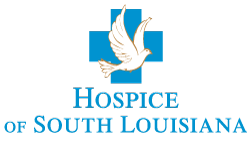Healthcare Professionals
Guidelines for non-cancer diagnoses
These guidelines are not meant to be inclusive. They are examples of criteria requirements set forth by the National Hospice Organization. A consultation would be necessary to make a definitive determination regarding hospice appropriateness.
End-stage cardiovascular disease
- Recurrent, persistent symptoms of CHF despite optimal/maximal treatments, including optimal therapy with diuretics and ACE inhibitors.
- Recent episode of cardiac arrest, syncope, respiratory arrest
- May or may not be oxygen dependent
- Multiple hospitalizations related to a severe cardiac condition
- Inability to perform physical activity of any kind without discomfort, pain, or shortness of breath
- CVA of cardiac origin, such as an embolism
- Ejection Fraction of ≤ 20%
- Unstable weight
- Uncontrolled edema
End-stage pulmonary Disease
- Dyspnea at rest
- Functional activity is limited so much that patient experiences a “bed-to-chair” existence, disabling dyspnea
- Signs of right-sided heart failure
- Multiple ER visits/hospitalizations for pulmonary infections or failure
- Weight loss greater than 10% of body weight in last 3-6 months
- Hypoxemia at rest (02 Sat < 88% on room air)
- Frequent steroid and/or antibiotic use
- Resting pulse rate > 100 beats/min
- Progressive cough and fatigue
- Previous requirement of a ventilator secondary to respiratory failure/infection
End-stage renal disease
- Candidate for dialysis, but refuses
- Stops dialysis to choose palliative care
- Creatinine clearance < 10ml/min (< 15ml/min if diabetic)
- Serum creatinine > 8.0mg/dl (> 6.0mg/dl if diabetic)
- Hepatorenal Syndrome
- Uremia
- Oliguria (UO < 400ml/24 hrs)
- Intractable hyperkalemia (> 7.0) not responsive to treatment
End-stage liver disease
- Prothrombin time > 5 seconds over control or INR > 1.5 and and serum albumin < 2.5 mg/dl, with at least one of the following:
- Recurrent bleeding or esophageal varices
- Ascites, refractory to treatment or patient non-compliant
- Hepatorenal syndrome (as evidenced by elevated BUN and Creatinine)
- Hepatic encephalopathy and/or coma (very late stage)
End-stage HIV disease
- Decisions to forego antiretroviral, chemotherapeutic, and prophylactic drug therapy related specifically to HIV disease
- CD4+ count below 25 cells/mcl
- Persistent HIV RNA (Viral load) of > 100,000 copies/ml
- Opportunistic diseases such as CNS lymphoma, progressive multifocal leaukoencephalopathy, cryptosporidiosis, wasting, MAC bactermia, visceral Kaposi’s sarcoma, renal failure, AIDS dementia complex or toxoplasmosis.
End-stage ALS (Amyotrophic Lateral Sclerosis)
- Rapid progression of ALS in last six months, as evidenced by: progression from ambulation or wheelchair to being bed bound, from normal to pureed diet, from independent or partial-assist to total assistance with ADL’s, no longer speaks intelligibly.
- Must exhibit one of the following: Impaired breathing ability as evidenced by respiratory infections or failure, nutritional impairment responsible for >10% loss of body weight in <6 months, or life-threatening complications like pneumonia, urosepsis, etc.
End-stage dementia; Alzheimer’s/Multi-Infarct
- Exhibits all the following: Unable to ambulate, dress, or bathe without assistance; unable to converse meaningfully with others, incontinent of urine and stool.
- Cannot sit upright in geri-chair or wheelchair without support
- Difficulty swallowing food, liquids or medications
- No longer smiling or interacting with caregivers
- History of frequent UTI’s, urosepsis, pneumonia, septicemia
- Multiple decubiti
- Weight Loss
End-stage Stroke, CVA
- Dysphagia may or may not be a candidate for artificial nutrition/hydration
- A Palliative Performance Scale ≤ 40
- Greater than 10% weight loss despite enteral feedings
- Comorbid conditions such as aspiration pneumonia, multiple decubiti, septicemia, urosepis, or frequent UTIs
- Unable to communicate meaningfully
